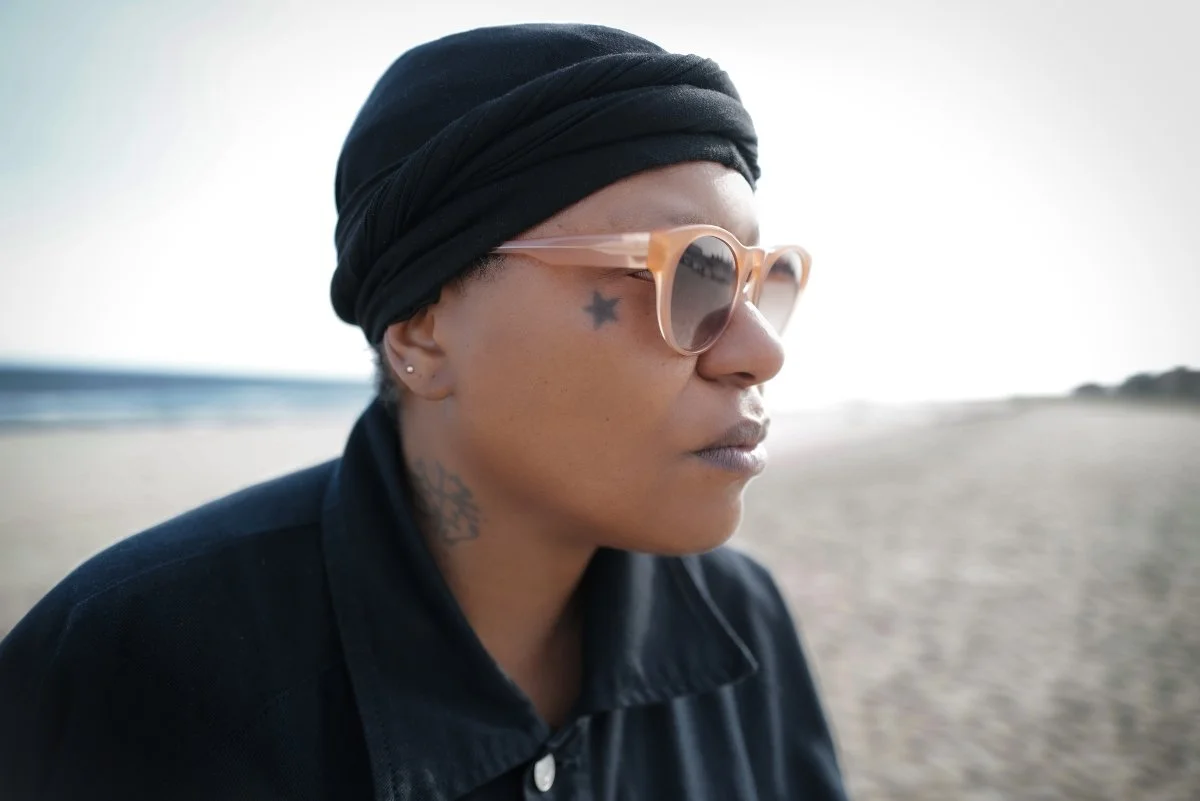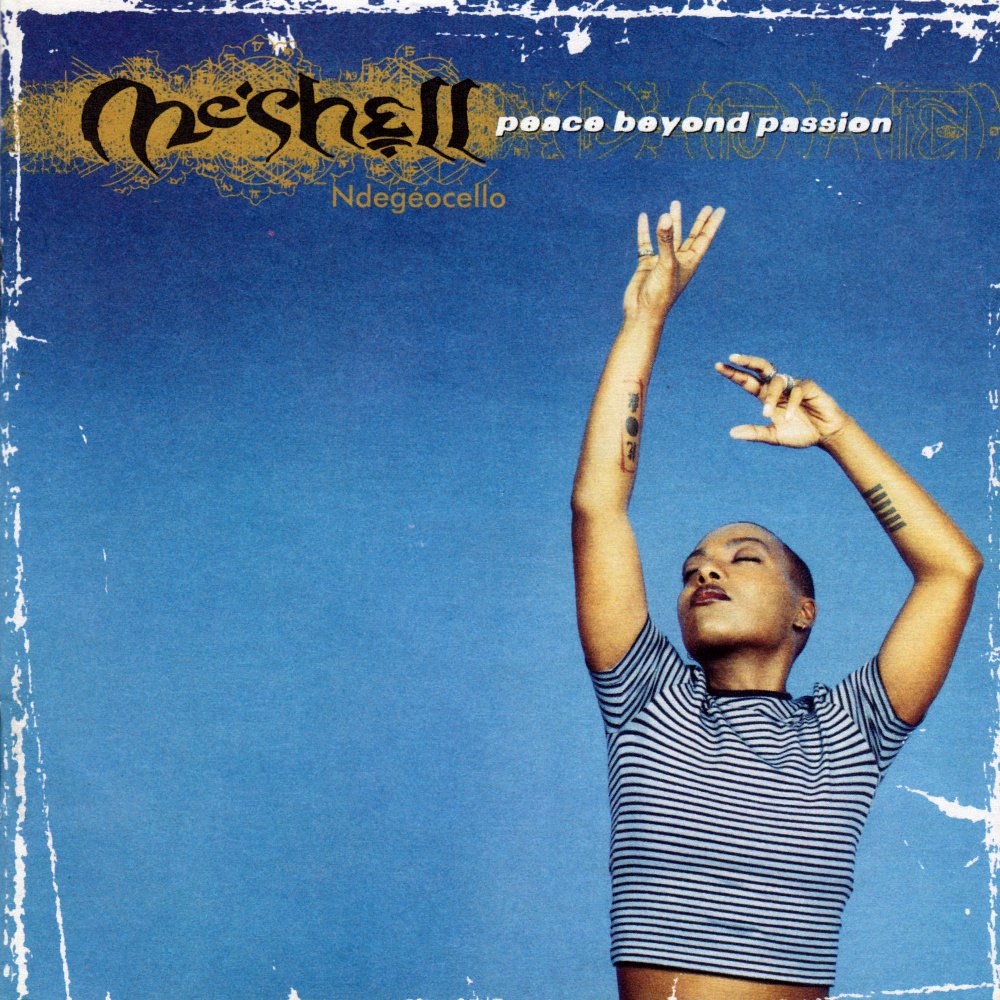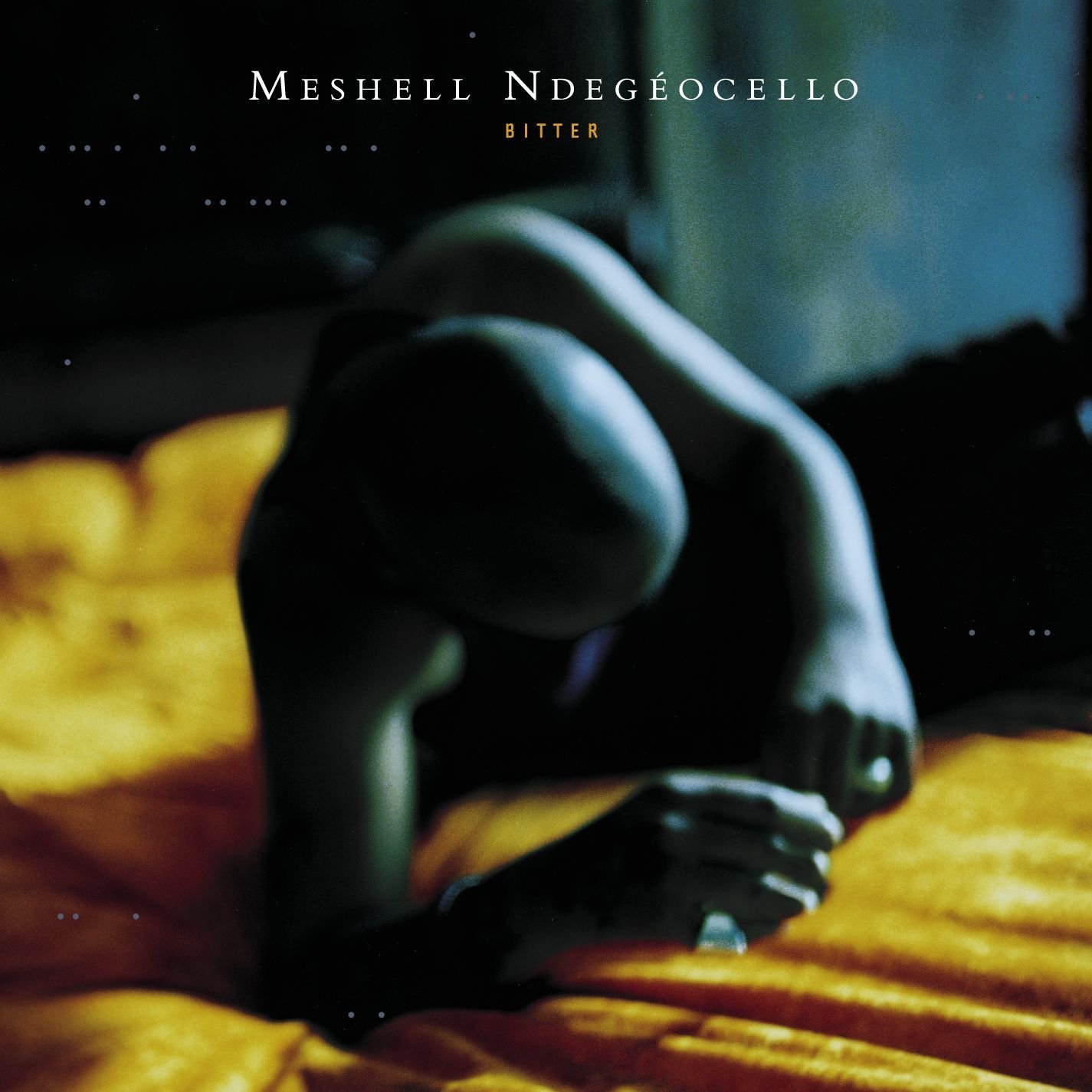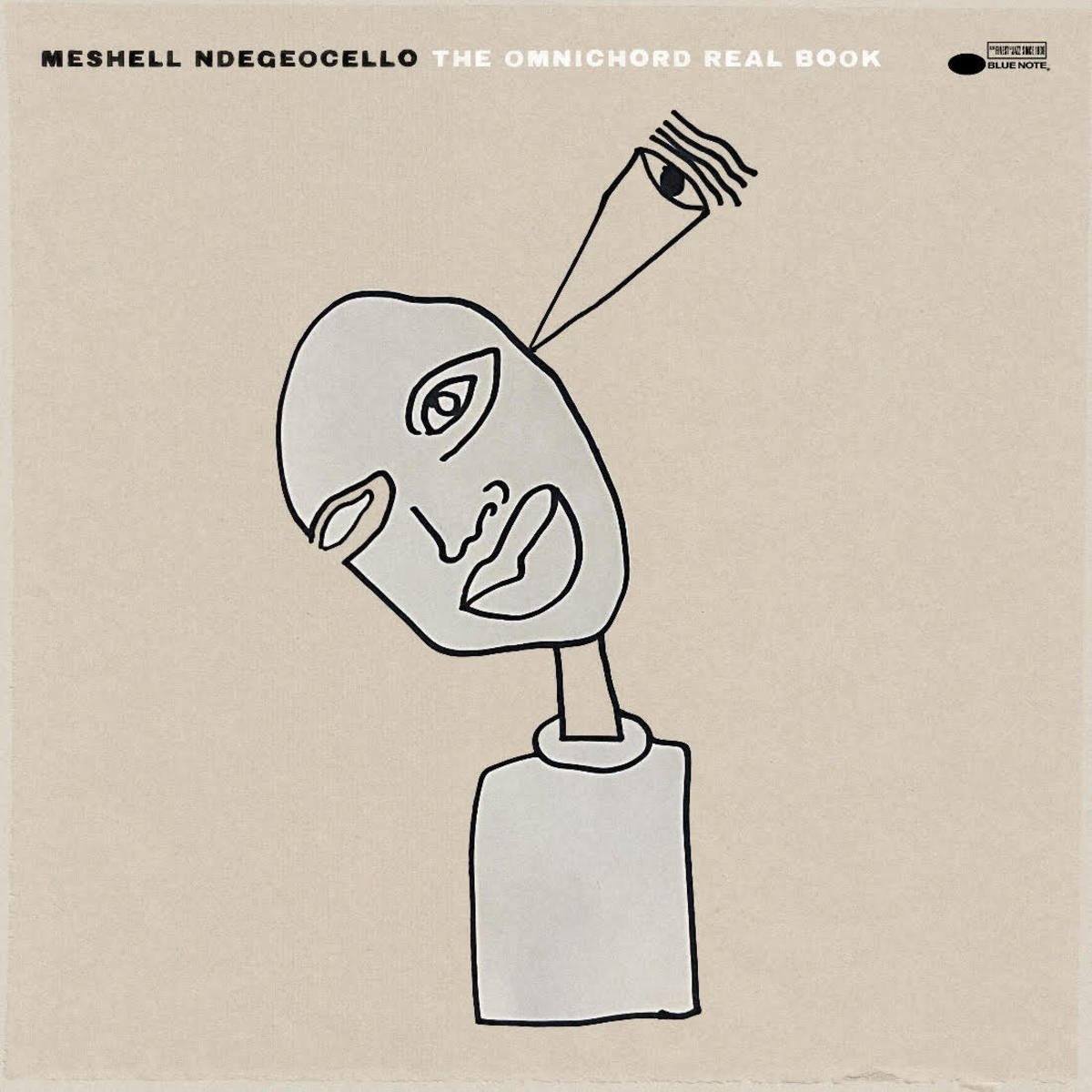In the wake of her excellent new album The Omnichord Real Book, I recently had the chance to speak with Meshell Ndegeocello about the making of the record, how she navigates the complexities of the music business, and how she finds hope in a world that sometimes feels devoid of it.
I want to start by thanking you for finding the time to talk to me—I know you are very busy touring at the moment. Whereabouts are you at the moment?
Thank you for your time too! Oh, I’m in Brooklyn for a day and then I have some studio work upstate that I will be starting next.
It never ends, does it?
Oh, that’s the good bit—music is a gift!
And how has the tour gone?
We just got off tour a few days ago and it was nice to see what the music would turn into and what to work on. It’s just good to be playing in front of people.
Has touring changed a lot for you from your early career?
Oh, yes of course, my love! It’s been thirty years since I started and I have a much less contentious relationship with touring. I make it how I want it to be—I carry my own kitchen! I try to make the “off” time as pleasant as it is being on stage.
Meshell Ndegeocello’s ‘The Omnichord Real Book’ is in stores now
I’m so happy to speak to you, but I’m very mindful of the limited time we have, so I’ve promised myself I’ll stick to talking about the new album, despite wanting to ask a million things about your whole career!
Let’s go then!
Talk to me about how the album began. Ventriloquism was in 2018 and then the whole world had some stuff to get through with the pandemic, so how did the album start? Do you work in a quite linear way?
You know the writing process just happens—I just wait for the transmissions! But during the down time, I got a lot of time to myself, to be quiet. I was working on scoring TV and film and I spent eight to ten hours in front of a screen. So, when I wanted to write I searched out instruments that didn’t have a screen. I wrote a lot on my omnichord and used Garageband or just simple instruments. I just wanted to get away from everything being on a grid. But once I had all the songs, though, I knew how I wanted to record it, so I went back to the same studio where I recorded Comfort Woman, because it’s in the woods and it’s beautiful, and we just all played together.
That sounds like an amazing experience.
I love being in the studio, it’s my favorite thing to do.
So tell me about the Omnichord, as it’s not something I’m overly familiar with.
It’s a little like that thing that PJ Harvey has, that she strums, the autoharp. It’s a little like that. To me, it’s just the Japanese version of an autoharp.
What is it about the omnichord that is so interesting to you?
It has a drum machine like Sly Stone and it’s really rudimentary. It just allowed me to not have to deal with software or plug-ins, and I could just get to the root of my thoughts.
Did you get a chance to hear the unearthed Charles Stepney music that came out last year—he had that same rudimentary, Sly Stone drum machine thing going on.
Yeah, I forgot about that—the rhythm king! I am not connected to that thing about going back or looking back. I don’t want to reminisce or be pastiche, it was just something that I liked and it was just not on a screen and I loved it.
It certainly makes a big impact at the beginning of the album—it sets the scene for what comes next.
I appreciate that!
This is your first album with Blue Note, although you’ve worked with people signed to it, isn’t it?
Yes, it is.
Now “iconic” is a word that gets thrown about quite cheaply sometimes these days, but Blue Note definitely merits that title, doesn’t it?
Oh definitely, yes. Those are the records of my childhood!
What records did you fall in love with on Blue Note?
Oooh, George Russell, Cecil Taylor—there’s so many!
So how did it come to be your “new home?” And although Blue Note is iconic, you have to choose these things very carefully, don’t you? So, what is it that they could give you?
Firstly, you have to make the music very carefully, that’s the thing that needs the care. Then with a label you have to make a relationship where you can be mutually satisfied with how your music is promoted and what they let you do and what they give you access to. What I’m learning is that it is a great label because it’s run by an artist (Don Was), another musician who has everything around him that allows him to see his ideas come to fruition. That’s why the label is different, but I’ve been on a lot of amazing labels. It just depends on who the figurehead is, who’s running it and what the intention is.
I think I’m different now too. When I made Peace Beyond Passion or Plantation Lullabies, I was 19 through 26 and now I’m a totally different person. This pairing is two people with an agenda, hoping to be successful (I don’t know how they define success!), but I’m trying to be successful making something that will connect with people so I can do some touring because that’s my livelihood. I’ve never sold a lot of records, so I see it for what it is—recording is a way to get interest and then people will come to the live performances.
Listen to the Album:
With the pandemic, that hit that working model, didn’t it? Did it change you in other ways too?
Definitely! I got to sit with myself again and not be on this treadmill that I realized I was on. All those distractions like social media and all that. It was nice to do nothing for months at a time. It changed me as a person—it enabled me to take stock of my life. How about you? Did you listen to more music? Did you watch more TV?
It certainly changed my life. I was a teacher up to that point and then it was the final nail in the coffin of that career. It’s lovely that you’ve asked me the question, but I want to hear more from you!
I think it changed a lot of people and creatively we are about to enter a time when you’re going to see the fruits of that sadness or that time away. Whichever way it goes.
Do you think that those changes you underwent will be lasting?
Well, what I have learned is that future questions are a bit of a bore. I also got to study a lot of Sun Ra. I am very forward or future thinking, but I also realize that I don’t have any control over what’s going to happen in the larger picture. Now there are many zeitgeists, many revenue streams and many rivers of music and art. There are microcosms and macrocosms, and I think now I just live in the power of knowing that I’m generating my perceptions. That will be a lasting change and I’m curious to see how I ride out the future—technically, through physical change towards impending death.
That’s pretty strong stuff!
What was your diagnosis?
Oh, I was diagnosed with a form of bone marrow cancer.
Oh! So did it make you say, “get to living!”
Yes, to a certain extent. I wish there were a few more grand gestures at embracing life, but it certainly made me reconsider what I was doing with my time. But if I can drag us back to the record and the people who are playing on it, you have such an amazing set of collaborators. How do those things come about? Are they quite organic or does the record label get involved?
Oh no, no. I made my record on my own, with my own money, and it was done before the label got involved. The people are just…I fear this sounds arrogant…I’m just one of those people who if I see you, I’m gonna go up and talk to you and try to be your friend or learn something from you.
When I met Jeff Parker, I knew it was a relationship I didn’t want to squander. Not because of who or where he is, but because he has so much to teach me. He is a walking Real Book. He is a master of improvisation in song. He introduced me to Joel Ross and Joshua Johnson. I would go see them play once a week at a spot in LA. And Jason Oran, he is one of my mentors and I try not to ask him for much but he changed my perception of myself and music.
But these people are just my friends! Hannah Benn is a genius—I met her through Deontay Parks who, in terms of drums, is a genius too! Justin and the Hawtplates worked with me on this James Baldwin project (which will also come out on Blue Note) that is based on the book The Fire Next Time.
That’s what COVID taught me, to be honest. That’s why I’m asking you questions—this is an energetic exchange. I’m really into people. I don’t want the simulacrum. I am trying to have something that affects me on a physical, molecular level and keeps my brain thriving. I just want to “exist” better. I look and read what’s happening in the world…there’s this Sun Ra thing. We always talk about life and death, no one ever just talks about just “being.” So, I’m just trying to exist better and experience things fully.
I mean, that’s a whole way of thinking about things, isn’t it?
It’s fucking hard!
Isn’t it just! You know, you mentioned earlier about how there are different zeitgeists and revenue streams for today’s artists. Are you grateful that your career started before the onset of social media and stuff like that? And how do you think you’d feel if you were just starting out now?
Oh, I think it’d be a lot harder because I come from a time when records came out every Tuesday or something. Now records come out every few hours—there’s new music being generated and released (one way or the other) every few hours.
Some people are making music between themselves, outside of popular culture inside their own circle. I’ve always been a fan of this experience. Does it aid me in caring for my family? Not all the time but I’m not mad at it. I grew up with the Top 100, but these young people are getting music from the last…thousand years! That is profound. I wish they understood that in the past, the marketing of yourself was really controlled by the company and that the freedom they have now is eye-opening. People can see the person you want to create for yourself.
We often dwell on the negatives (and often rightly so), but imagine the power of being able to find almost any song ever recorded, on your phone, in a matter of seconds.
I know, right. It’s mind-blowing. But I have a juxtaposition. I am glad that I grew up and I just listened to this one record. It was my life. I didn’t scroll through it, I had to listen to it in its entirety. I did some guest teaching at a university. It was in the woods and there was a thunderstorm and all the power went out. It was the day they were supposed to show their pieces and creations that they’d made and when there was no power, I realized that none of them made anything that they could just play with no power! And so I respect where we are now, I don’t want to be one of those people who thinks that as I get older, I know it all, but I want future generations to know all the ways of self-expression. Whether you make the sound waves digitally or otherwise. There are different modes and I want you to be aware of them all.
So, having done that teaching, how did it make you feel about the future? Looking at the young people there, did it fill you with confidence?
Oh my Lord, yes! I have great faith in young people—I’m not a dinosaur. They couldn’t see the meteor coming! I’ve lived in a time and read about the ‘40s and ‘50s where I can see that if you don’t listen to the old and the young, you’ll be trapped. I feel like we’re living in a time when we’ve tried all these ideas and I’m ready for a different perspective than that of my peers or elders.
How do you keep that open mind? I know you mentioned earlier about working with great labels, but there must have been times when it hasn’t worked for you and things have become mangled in the process, so how do you keep your mind open?
It sounds so corny! I have really good friends and family. And I am my own cheerleader. I grew up in difficult circumstances and I had to learn to be self-sufficient in my awareness and trust in myself. Though I had a lot of trauma, it allowed me to be self-sufficient. I don’t need you to be my cheerleader. I’ve been booed and humiliated and that really helps you. Once you’ve been booed on stage by a lot of people, you can pretty much take anything! I’m at a place, not of wisdom, but where I can see some things. I’m interested in new things, not the novel, but a new way of experiencing “now” instead of having a criteria.
The album really succeeded in being a full representation of your past endeavors as well as pushing forward. In fact, if someone came to me and said, “who is this Meshell Ndegeocello?”, I think this album encompasses all of your various iterations. There was one song in particular though that took me completely by surprise—“Hole In The Bucket.” It was such a shock to me, given that I’d only ever heard it in a childish nursery rhyme context—it was amazing. And apart from the obvious wonder of the vocals (which are heavenly), the arrangement is stunning. Where did that idea come from?
We are about to answer that other question too! See, this is why I have faith in the young. I knew it was a good song. It was actually the Hawtplates and this is where I am in my life—it’s about giving other people the opportunity. It was a part of a play that the Hawtplates had made and I heard it and still keep the tiny little phone version on my voice memos. It just spoke to me. They are a husband, wife and sister group and their synergy is something that is otherworldly. It’s just the right ending—I knew I wanted it to finish that way.
I’ve been working with Justin on that Baldwin project and he is a lyrical genius. He does sound work for theatre. It was like the moment when I made Bitter and met Chris Bruce. I met my “brother.” Or when I made Plantation Lullabies and met David Gamson. We were having a conversation that I felt I couldn’t have with many people. I felt like we were at a complete and utter understanding. We were so connected and that’s how I feel about the Hawtplates and that’s why I wanted to feature them.
I know now, I’m the elder. I used to be the child and somewhere in between I made all the mistakes and had all the fun. But now I understand what we’re all here for. Before our departure date, we’re just trying to do the best to keep things flowing, be nice to people and put out good music.
Click/tap on the album covers to explore more about Meshell Ndegeocello:
Glastonbury was on last night and Elton John performed and rather than stuff it full of his old showbiz pals, he chose (like you) to use the moment to show off new talent like Jacob Lusk from Gabriels.
I have children and that helps too because they are just like I was as a child—dying to be heard, noticed or felt. You have to share what you’ve been given.
I have one final question for you, which we always ask people we interview. What are your five favorite albums?
Oh, yes. I’m ready for you! So, Kind of Blue by Miles Davis, Calling Out of Context by Arthur Russell, Babylon by Bus by Bob Marley, Mama Rosa by Brian Blade and Another Green World by Brian Eno.
I want to thank you for two things. Firstly, I want to thank you for your very precious time—it’s been a pleasure to talk to you, a real joy. Secondly, as a massive Prince fan, I want to thank you for doing “Sometimes It Snows In April” such justice as a tribute to him. It was pretty much the only thing that I heard after he passed that really connected with me.
I appreciate you saying that. We just passed through Minneapolis last week and…I have so much love and respect for him.
Once again, thank you so much.
LISTEN:






